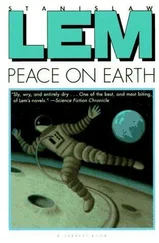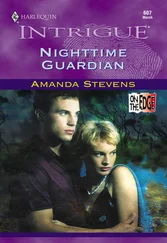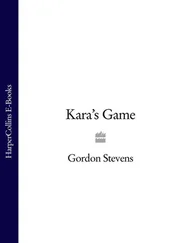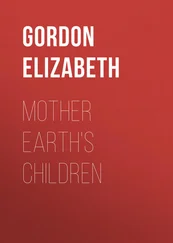‘And you don’t know where your husband went?’ There would be the first note of an interrogation in his voice.
Be brave, Alexandra Zubko, she would tell herself, do not let them frighten you. Remember that they have refused you twice, that they have already decided to refuse you a third time.
‘It doesn’t matter where my husband is,’ she would wish already that she had not answered the official in such a manner, would know it was too late, ‘the invitation is to me, I am the one you must tell, not my husband.’
The man began reading from the file, not bothering to look at her, reading the words he would forget the moment she left, the words she would remember for ever.
Fifteen minutes later Alexandra left the office on Kolpachny Lane and turned for home.
Not today, Yakov Zubko, she knew now why she had pleaded with her husband that morning, why she had been afraid of the sudden cold, of the winter it would bring, of what else it might visit upon them. For God’s sake not today.
It was twenty three minutes past one.
The American family lunched at twelve. Yakov Zubko watched them from the side of the foyer: the mother and father, the two children. They had been at the hotel eight days and he had seen them on the third. Each day after that he had made a point of meeting them, of helping them with their bags, each day after that he had smiled at them. On the fifth day one of them had smiled back. Then and only then had he risked checking their names on the hotel register, noting both their nationality, which he had already guessed, and their date of departure.
By the time they finished it was twenty-five minutes to two. Yakov Zubko saw them waiting for the official bus and remembered where all the tourists went on their last day in Moscow, began to plan his afternoon so that he could make his approach to them when they returned.
At fifteen minutes to two the unmarked Zhiguli left its position overlooking Dmitrov and returned to the militia headquarters on Petrovka. By two fifteen the next shift had taken over. Although there had been two visits to the black marketeer that morning, Iamskoy had instructed the militiaman to log only one: a further visit that afternoon was almost certain, two probable, three remote but possible, and a total of five visits on the second day of the surveillance was the point at which the team on duty could close their snare. Routine but important Iamskoy had decided. The following morning, he had therefore decided, he would arrest the suspect Simenov and those who brought their goods to him.
The flat was quiet. Alexandra looked around it, knowing what she was about to do, sensing that Yakov Zubko would understand. The furniture was sparse and functional; three of the chairs round the table had been bought over the years, but the fourth was a family heirloom, a wedding present from a beloved grandfather, now dead. Carefully, taking care not to damage it, she carried the antique down the stairs, perched it on top of her daughter’s push-chair, and tied it in place with a piece of string. Then she gathered the girl in her arms, and went to collect her son from school.
He was ten minutes late. When he came out she kissed him then set off, still carrying her daughter, along the route her husband had taken that morning. The walk took twenty minutes, Alexandra managed the child for the first ten before she became too heavy.
The men outside the shop saw her coming, nudging each other to look at her, scarcely bothering to hide their amusement. They were all young, dressed in fur coats and lounging against the estate cars parked outside the shop. One of them was helping another man, someone she took from his clothing to be a foreigner, to load a desk onto one of the cars. She had heard about the shop, that it was where the foreigners came to buy the equipment for their offices and the furniture for their homes, one of the places to which the authorities turned one of their many blind eyes. The foreigner turned to watch her, slightly fascinated, slightly embarrassed by the image of the woman pushing the pram with the chair on top, the two children walking bravely on either side of her. He had been a correspondent in Moscow for six months, and had learnt sufficient Russian in the time to understand what the young men in the fur coats were saying, enough to understand the sexual innuendo of their remarks. The driver he had hired to take the desk to his office was becoming impatient. He told the man to wait, watching the woman as she struggled to push the pram and its load through the door, no one moving to help her, and followed her inside, calculating how much the man in the shop would charge him for such a chair, was not surprised when the man gave the woman less than a thirtieth of what he estimated it was worth. Outside it was getting dark. He watched the way the woman folded the notes into her purse and tucked the purse carefully into the pocket of her coat, the way she lifted the girl at her side into the pram and pulled the boy close to her, the way she disappeared down the road, wanted to know what she was doing, why she was doing it, wanted to wish her luck, tell her that one day all would be well for her. Behind him he heard his driver start the engine of the estate car; he turned away from the woman and went back to his office.
The American family returned to the hotel at five, their arms laden with parcels wrapped in the colours of the Beryozka shops. Yakov Zubko watched them from the side of the foyer. The official guide was laughing and joking with them, for one moment he feared that she had already arranged the same thing he had been planning since he had first seen them, then she turned away to talk to another group. He crossed the foyer, arriving at the lift as they did, holding the doors open for them and helping the children with their parcels, then followed them in, pressing the button to close the doors before anyone could join them.
‘Good afternoon,’ his English was formal, almost mechanical, from the books he had studied since he had lost his job as an engineer. ‘I hope you enjoyed your stay in Moscow.’
The husband looked at him suspiciously. ‘Yes, thank you,’ he replied carefully.
The doors were shutting.
‘Everyone goes to the Beryozka shops on their last afternoon,’ Yakov Zubko explained, trying to relax them. He had only one chance, he thought. The doors were almost shut. ‘How old are the children?’
An elderly couple pushed forward and tried to step into the lift. The husband saw them and jerked the doors open for them. Yakov Zubko understood why he had done it, that the man knew why he had joined them, what he was going to ask them. One chance, he told himself, already slipping away.
The elderly man thanked the American and asked for the fourth floor. The Americans were in rooms 607 and 609, two floors above the others, Yakov Zubko remembered. The chance not quite gone. The lift stopped at the fourth floor and the other couple stepped out, the doors closing and the lift gathering speed again.
‘How old are the children?’ he asked again, looking at the denims they were wearing, not disguising the fact, letting the parents know there was a reason.
‘Twelve and ten,’ said the mother, not looking at him.
He nodded, looking back at the denims, hoping he was right but fearing he was wrong. ‘Mine are the same age.’ They all knew he was lying. ‘May I buy the children’s denims from you before you leave?’
The lift passed the fifth floor.
‘No.’ It was the third time the husband had rejected such a request that day. Be careful, his company had advised him when he informed them where he was taking a holiday, the Russians were always looking for people like him, especially in a profession like his, always seeking ways of entrapping them. ‘No,’ he said again emphatically, turning away.
Читать дальше












